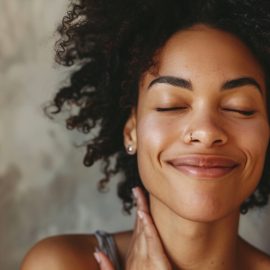

This article is an excerpt from the Shortform book guide to "Humankind" by Rutger Bregman. Shortform has the world's best summaries and analyses of books you should be reading.
Like this article? Sign up for a free trial here .
What is in-group favoritism? Is in-group favoritism necessarily a bad thing?
In-group favoritism is a tendency to favor members of one’s in-group (e.g. in terms of race, ethnicity, culture, etc.) over members of out-groups. On the one hand, in-group favoritism is a good thing because it fosters bonding and cooperation. On the other hand, it causes unfair prejudice and irrational animosity towards members of out-groups.
Keep reading to learn about the phenomenon of in-group favoritism, its biological underpinnings, and how to overcome it.
In-Group Favoritism
Biologically, this desire to look out for our own group is due to our high levels of the hormone oxytocin, which regulates love. In most cases, this is a positive thing: It allows us to learn from one another and develop relationships.
However, our high levels of oxytocin have a downside. According to Bregman, research suggests oxytocin only enhances connection to people who are familiar to us—people who we know or who look, talk, and act like us. Furthermore, oxytocin gives us an aversion toward strangers. This aversion can make us support the people in our group at the cost of others. It can lead us to villainize strangers and see them as less than human, making us more likely to commit violence against them.
(Shortform note: Scientific studies confirm Bregman’s claims that oxytocin increases trust of those who are in our group and decreases trust of those who aren’t. Furthermore, research shows that oxytocin has several other positive and negative effects that Bregman doesn’t mention. For example, in addition to helping develop trust, evidence suggests that oxytocin can improve social skills, and researchers theorize that a dose of oxytocin could help people with autism feel more comfortable in social situations. In terms of the negative effects, researchers have found that too much oxytocin can lead to increased stress and social anxiety.)
Fortunately, we can fight in-group favoritism by getting to know people from other groups. Bregman explains that frequently interacting with a diverse group of people drastically decreases prejudice and hate. Having friends from different backgrounds helps us go beyond stereotypes and see those different from ourselves as fully human.
| Scientific Evidence: How Much Does Friendship Reduce Prejudice? Scientific evidence supports Bregman’s claim that developing friendships with people from other groups decreases prejudice. Studies show that the positive effects of friendship apply to various types of prejudice, including racial, ethnic, and religious prejudice. However, there’s an important caveat to Bregman’s claim. Several studies have shown that while intergroup friendships do decrease prejudice, they have a more positive effect on members of the majority, dominant group. For example, one study studied friendships in German schools between German (majority) and Turkish (minority) children. It found that having a Turkish friend greatly increased German children’s perception of Turkish people. But having a German friend didn’t significantly change how Turkish children saw Germans. Research from other countries shows a similar trend. Researchers theorize that members of minority groups benefit less from intergroup friendships because they approach these friendships with more caution. They might be more hesitant to open up due to previous experiences of prejudice at the hands of the majority group. |

———End of Preview———
Like what you just read? Read the rest of the world's best book summary and analysis of Rutger Bregman's "Humankind" at Shortform .
Here's what you'll find in our full Humankind summary :
- Why humans are fundamentally good, not evil
- How the Stanford Prison Experiment was misleading
- How recent studies have debunked "Killer Ape Theory"






